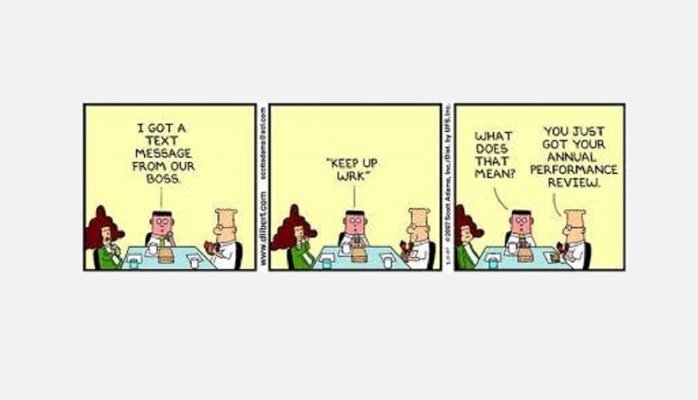There’s been a lot of talk lately about big name companies ditching their performance reviews and saying goodbye to the traditional performance review format. While I can see why organizations are frustrated with the process, the focus of this conversation has often been on why reviews are being left behind and not enough discussion yet on how we (HR) are going to look to replace them.
The Good
The honest truth of the matter is, performance reviews are not all bad. In fact, in some organizations they have a purpose. Reviews are there to help align everyone to the organizations’ goals and get everyone pulling in the same direction. This becomes a powerful tool, especially when we want to put our focus on one or two specific areas, such as customer service or continuous improvement. In some organizations, performance review scores can tie directly into decisions around merit increases and / or bonus payments.
Performance Reviews also provide an opportunity to provide feedback and thank our employees for their good work. It allows us to talk about areas for improvement. If someone doesn’t know where they can improve, how do you expect them to get better?
The Bad
Performance Reviews are cumbersome. They are often too long, too detailed and don’t measure meaningful areas. Leaders hate filling them out and often employees see no value. From this perspective, I agree completely that many reviews have failed and might be doing more harm than good.
Additionally, if Leaders are only having conversations with their employees about performance at review time, the review will not effective and neither will the Leader.
What’s Next?
It’s great that companies are realizing that the traditional performance review is not always the right fit for their environment and are not afraid to shake up the status quo. So the question becomes, what should we replace it with? If we no longer conduct reviews, how do we ensure our leaders are providing regular feedback to their direct reports? If we are a pay for performance organization how do we make decisions around merit based compensation or bonuses?
Regular and meaningful feedback requires a commitment from leadership, and leaders that are adept at setting expectations, holding employees accountable and providing constructive criticism. From an organization standpoint, this means investing in your leaders and building a culture where leaders are intentional about their employees’ professional and personal health all year around.
As the HR industry continues to move forward, becoming a more of a strategic partner, and moving away from some traditional, non-effective approaches, we need to continue the conversation past “this isn’t working” to “why isn’t this working – and how are we going to change it?”
Devan is a Partner with Acuity HR Solutions. For more information about what Acuity’s team can do for your organization, visit our website at www.acuityhr.ca





